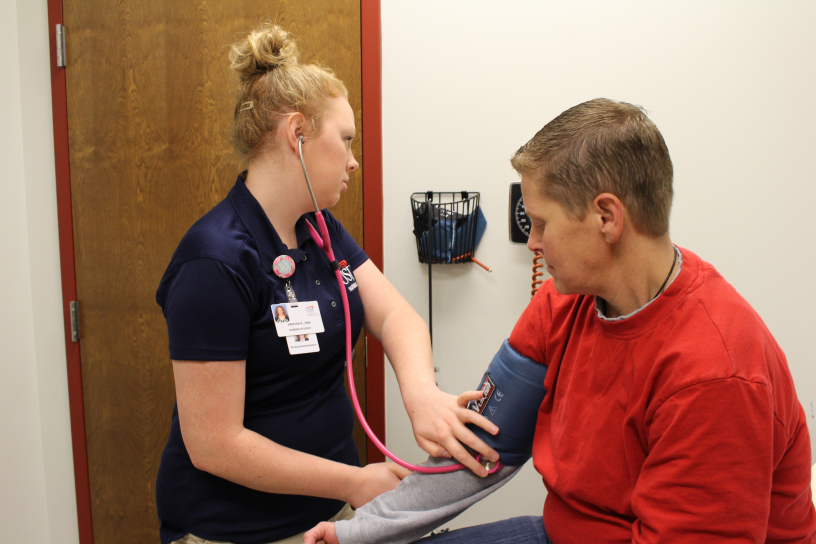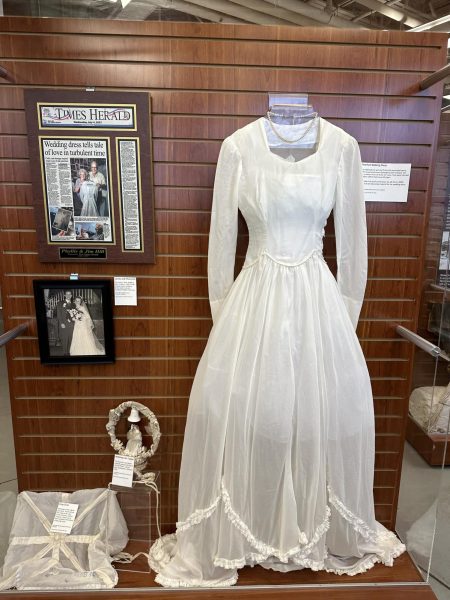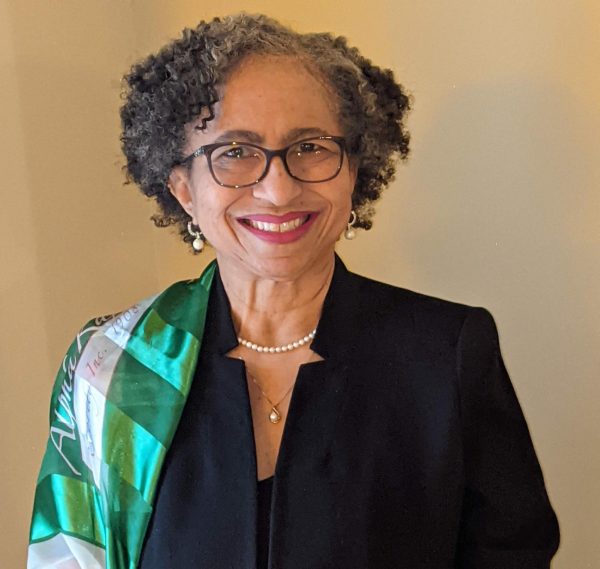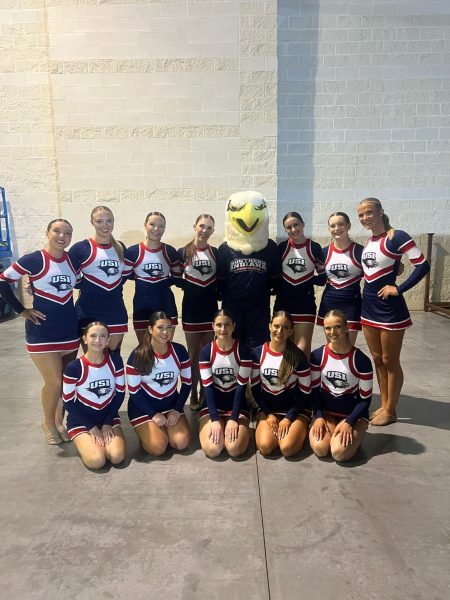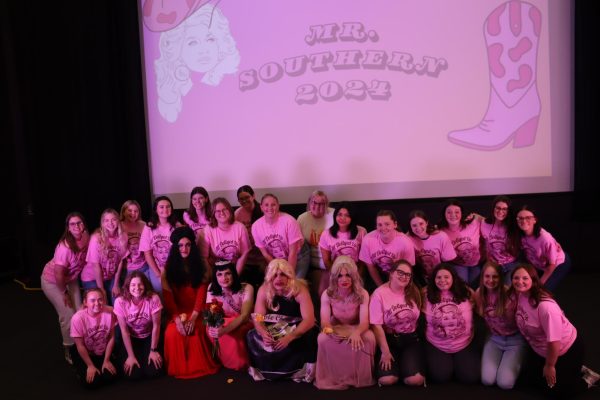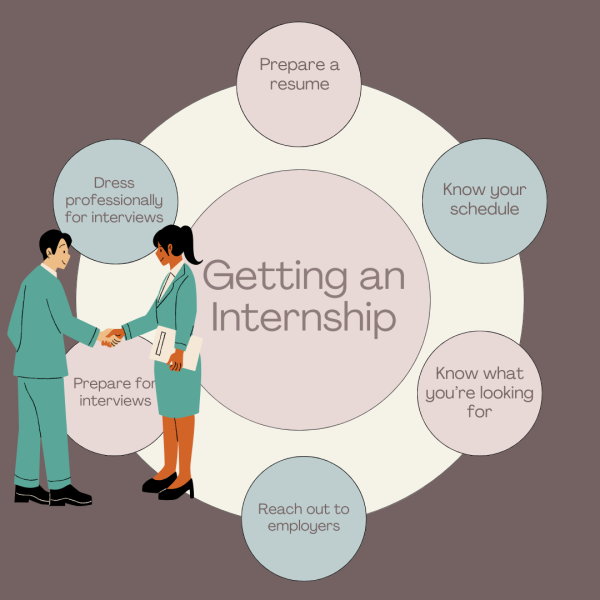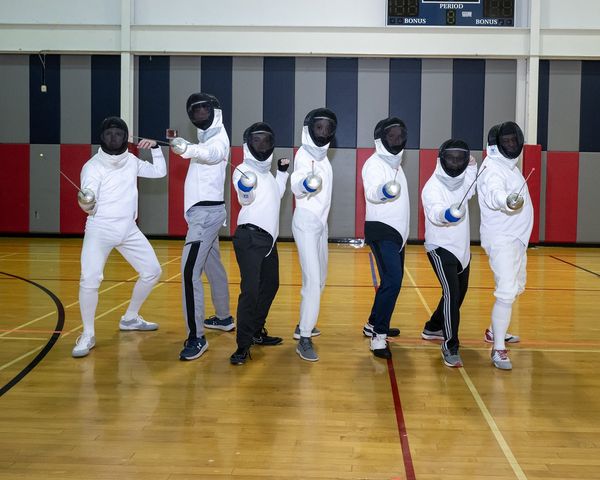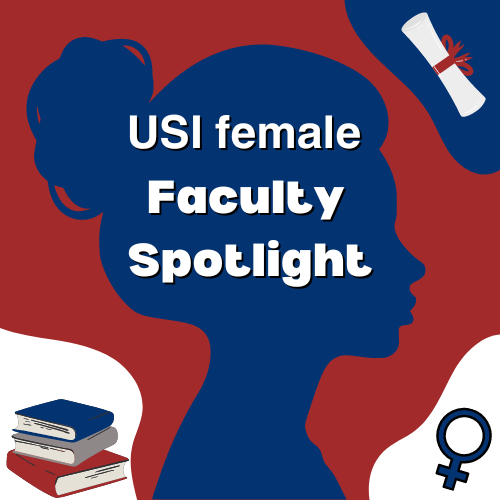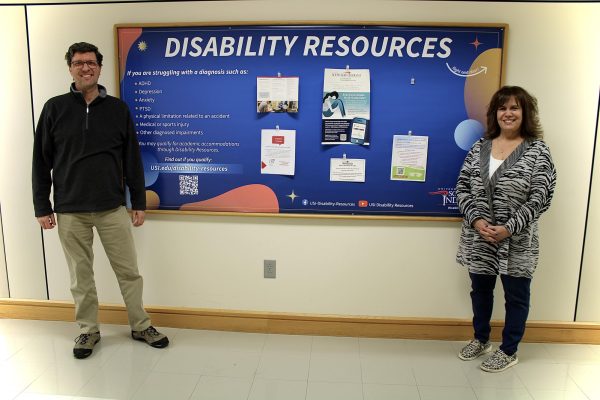Student experiences ‘eye-opening’ opportunity
Kristin Reckelhoff, a senior nursing major, uses a blood pressure cuff to check her patient, Heather Sheridan’s blood pressure, during Sheridan’s appointment during December. Reckelhoff goes to USI-Glenwood Community Health Center every other Wednesday at 8 a.m. where she sees anywhere from three to nine patients during her eight hour shift.
As part of the 2016 Basic Reporting class students were asked to feature a student and their internship from the fall semester. Student journalists were able to follow students throughout an internship while others found students with an independent study. The different projects ranged from working in the coroners office to research about the effect of climate change on plants. This semester The Shield will run a series showcasing the different stories written from those experiences. The series starts with a story about senior nursing major Kristen Reckelhoff and her time at the USI-Glenwood Community Health Center.
Kristen Reckelhoff smiled and grabbed her clipboard as Heather Sheridan walked through the door into the exam room at the USI-Glenwood Community Health Center.
“We are going to take your vitals first,” she said as she listened to Sheridan’s heartbeat.
Every other Wednesday the senior nursing major starts her eight-hour day at the medical center for the Interprofessional Education project, which gives medical students the opportunity to work in teams with nursing, respiratory, social work, occupational and nutrition students while earning clinical or volunteer hours.
Reckelhoff said “it’s been eye-opening” to come to the clinic to learn about what each person does.
“I think it’s a real benefit because patients are able to come see all of us at once,” she said. “If they were at a regular primary care provider they may not get to see a respiratory therapist or a social worker.”
The IPE project came from a federal grant that the university received in 2013. Since then the university has sent teams of students to Glenwood Leadership Academy, Cedar Hall Elementary School and Lodge Elementary School.
“We see social workers in the hospitals but seeing what they are doing in this type of setting and respiratory therapists is eye-opening,” she said.
Reckelhoff said she plans to work in a hospital after she graduates, and her experience at the clinic will help her patient receive the care and resources they need and will help her look at their health care with a different perspective
“This clinic serves the lower income population of Evansville and there are a lot of needs that need to be met for this population that I don’t think we are taught about in school,” she said.
Karin Pruitt, outreach and operations manager for the USI Community Health centers said if a patient comes in with asthma and diabetes and depression they have all three of those bases covered and the resources to treat the patient.
“I just think it’s been a great experience for everyone involved, our staff and our patients,” Pruitt said. “I just put myself in their shoes, and I think back to when I was in college and I think it could’ve been so neat to be a part of something like this.”
Pruitt said she remembers the time when a young teenage girl came in with a baby and although she was at the clinic for health care, the IPE students found her a spot at a homeless shelter and gave her diapers for her child.
“She left here with all kinds of resources, but she didn’t come here for that,” Pruitt said. “Each of these students are coming at this from their own approach and they are all getting together to treat this one individual patient as a collaborative measure.”

